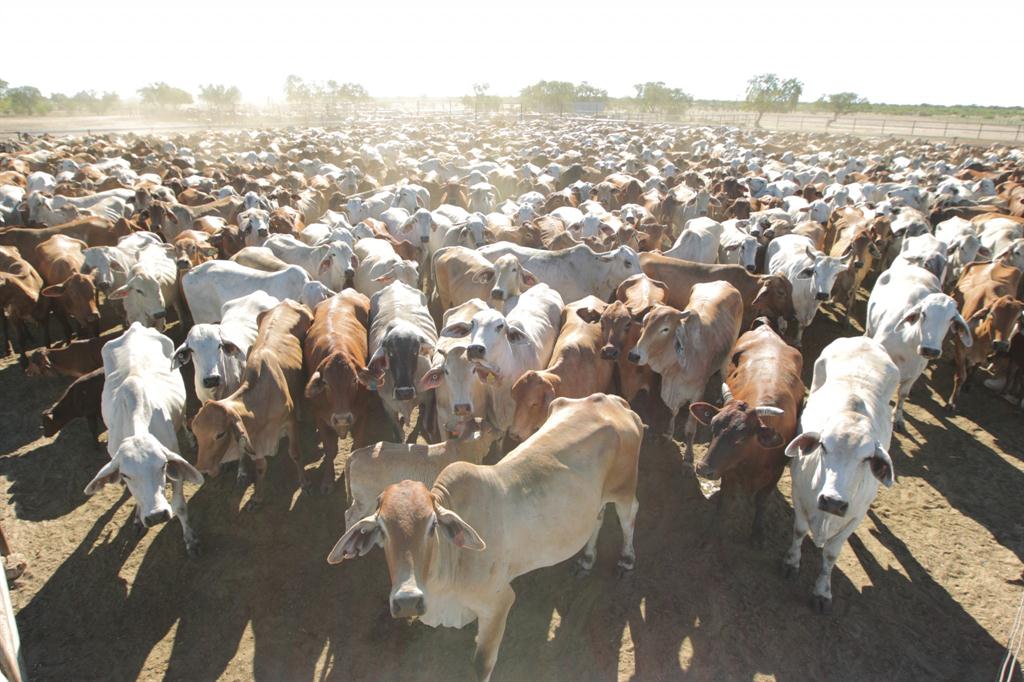Choose the best for the best
Livestock farmers should strive for optimal productivity while keeping production costs in check and the production efficiency of a livestock enterprise is directly linked to the efficiency of livestock selection.
According to Agribank, to maximise productivity, a livestock farmer should establish breeding objectives and goals, and implement a selection process that will meet their objectives. The purpose of livestock selection is to improve herd or flock productivity, meet market demands and increase farm income.
Agribank says there are several factors that hinder livestock improvement, which amongst others include the costs of breeding materials, uncontrolled breeding practices, absence of records, skills or knowledge gap and environmental conditions.
“Selection is critical to optimal livestock performance, and the objective is to retain and maintain superior breeding animals that will pass the most desired traits onto future generations. To achieve this, three common approaches can be used in order to help the farmer make desired and well-informed decisions.”
These are visual assessments which are based on descriptive standards set to identify an ideal animal based on its physical soundness such as body conformation, posture udder and testicle size and placement.
According to Agribank, another approach is genetic assessment which is based on known inherited characteristics which are influenced by an animal's genotype. This is done by genetic evaluation methods such as estimated breeding value (EBV) or expected progeny difference (EPD).
The use of these methods is based on statistical formulas to predict if an animal is able to pass on the most economically important traits such as growth rate, carcass quality, reproductive efficiency, parasite resistance, etc.
The difference between the two is that EBV estimates individual animal breeding value whereas EPD estimates the individual animal's progeny (offspring) breeding value. Farmers can always obtain such estimates from livestock stud breeders' associations.
Classing and culling is visual assessment of the animal, and the use of its performance history such as calving intervals, abortions, complications at birth.
“For example, a cow on average should have a calf every year (365 days and less), but if it starts delaying and has longer intervals between every calf, then it can be selected and classed as a low- or non-producer, thus, culled for market,” according to Agribank.
For any animal type or breed, a farmer should take into account the environmental conditions and their management ability. “On that, what is expected is a productive and adaptive animal, and the management should be able to meet the animal's requirements in terms of health and nutrition, and general animal welfare practices,” said the bank.
Ellanie Samit
Agribank says there are several factors that hinder livestock improvement, which amongst others include the costs of breeding materials, uncontrolled breeding practices, absence of records, skills or knowledge gap and environmental conditions.
“Selection is critical to optimal livestock performance, and the objective is to retain and maintain superior breeding animals that will pass the most desired traits onto future generations. To achieve this, three common approaches can be used in order to help the farmer make desired and well-informed decisions.”
These are visual assessments which are based on descriptive standards set to identify an ideal animal based on its physical soundness such as body conformation, posture udder and testicle size and placement.
According to Agribank, another approach is genetic assessment which is based on known inherited characteristics which are influenced by an animal's genotype. This is done by genetic evaluation methods such as estimated breeding value (EBV) or expected progeny difference (EPD).
The use of these methods is based on statistical formulas to predict if an animal is able to pass on the most economically important traits such as growth rate, carcass quality, reproductive efficiency, parasite resistance, etc.
The difference between the two is that EBV estimates individual animal breeding value whereas EPD estimates the individual animal's progeny (offspring) breeding value. Farmers can always obtain such estimates from livestock stud breeders' associations.
Classing and culling is visual assessment of the animal, and the use of its performance history such as calving intervals, abortions, complications at birth.
“For example, a cow on average should have a calf every year (365 days and less), but if it starts delaying and has longer intervals between every calf, then it can be selected and classed as a low- or non-producer, thus, culled for market,” according to Agribank.
For any animal type or breed, a farmer should take into account the environmental conditions and their management ability. “On that, what is expected is a productive and adaptive animal, and the management should be able to meet the animal's requirements in terms of health and nutrition, and general animal welfare practices,” said the bank.
Ellanie Samit




Comments
Namibian Sun
No comments have been left on this article